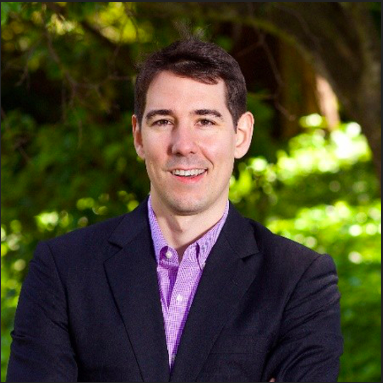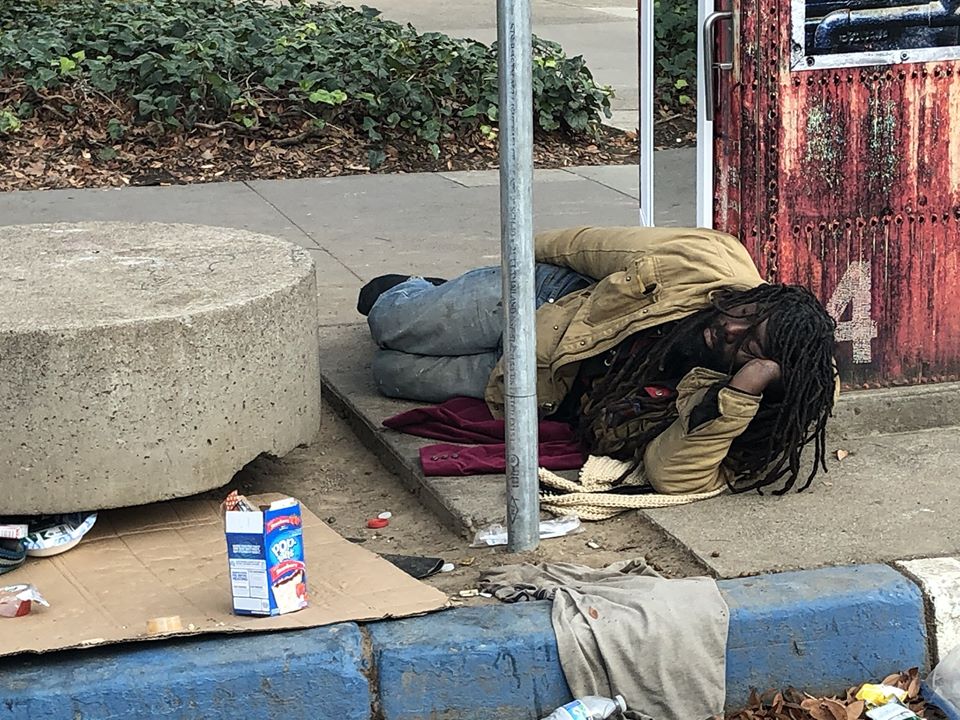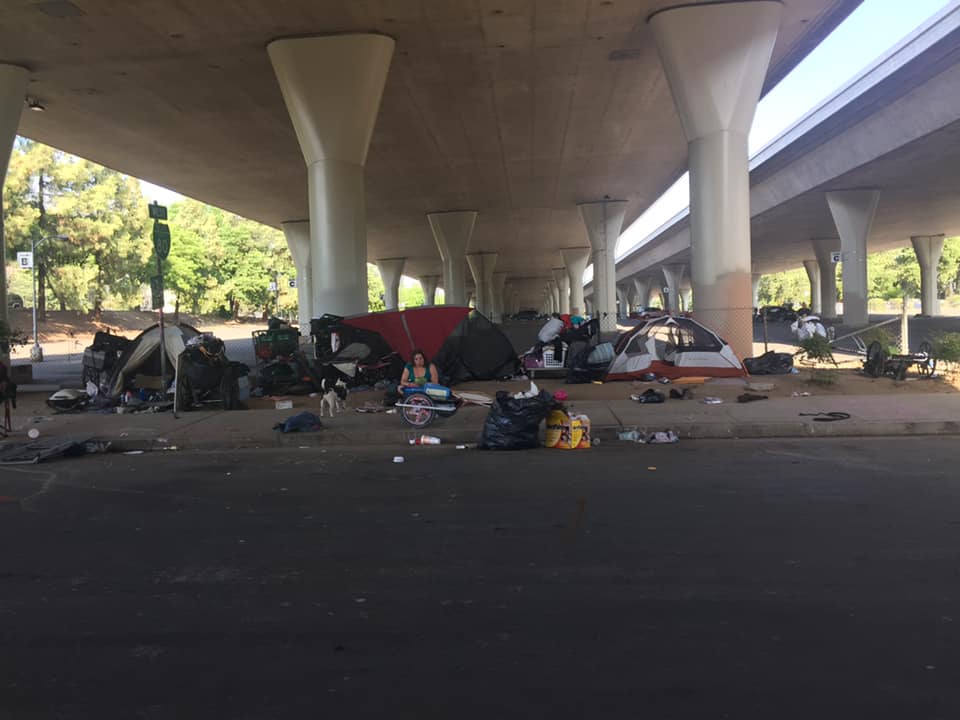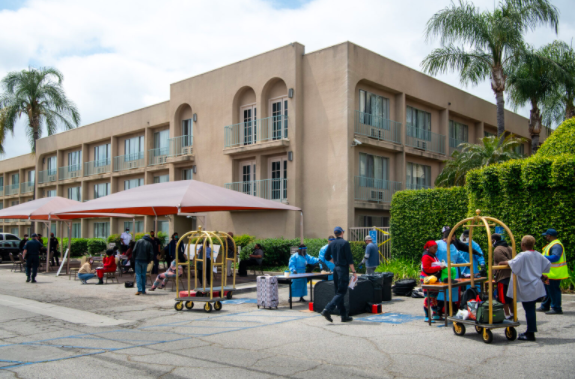
Rep. Josh Harder (Photo: Wikipedia)
CA Rep. Josh Harder Compares California Homeless Epidemic to a Natural Disaster to Receive FEMA Assistance
Homelessness in CA is not a natural disaster
By Katy Grimes, January 16, 2020 4:40 pm
“Homelessness is an emergency. Let’s call it what it is,” Rep. Harder (D-CA) said in a statement Tuesday. “My bill will bridge the gap between the president and the governor and allow us to get the federal support we need to get people off the streets.”
Comparing the excruciating policy-created homeless crisis in California to a natural disaster needing the assistance of the Federal Emergency Management Agency is like comparing the Berlin Wall with the U.S. Mexico Border wall – they are two very different issues.
U.S. Representative Josh Harder, a Democrat representing Modesto and the surrounding San Joaquin Valley, introduced the Homelessness Emergency Declaration Act on Tuesday, Courthouse News Service reported.

Harder said, “If we can declare an emergency after a natural disaster that leaves people without homes, we should be able to do the same thing for an economic disaster.”
Harder’s press statement quotes several managers of housing and health NGOs who stand to receive FEMA funding if Harder’s disaster assistance request is approved.
Courthouse News then quoted Jennifer Friedenbach, director of the Coalition on Homelessness in San Francisco, who “believes the federal government helped cause the current crisis by divesting in housing and social welfare programs for the nation’s most vulnerable citizens.”
“Friedenbach also blamed the housing crisis on rising rents, which she said force people to spend more money on housing, making them even more vulnerable to a temporary loss of income, hospital bill or gap in benefits.”
“We in San Francisco have seen a massive amount of displacement especially among black and brown people and people with disabilities, and the thing they have in common is they don’t have access to accumulated wealth and are too poor to afford a place to live,” Friedenbach said.
The policies Friedenbach incorrectly refers to have very little to do with California’s crisis of criminal drug addicts and the mentally ill living in rat-infested tent cities, on public streets, in downtown centers, and along rivers. It is the policies passed by the California Legislature and signed by Governor Jerry Brown and now by Gov. Newsom making the homeless and crime crisis worse.

Gov. Newsom’s homeless task force wants to force cities to provide housing, when housing is not the prevailing problem – those living on the streets are not our former neighbors down on their luck – mental illness and drug addiction is, as is the state’s policies of prison population reduction, early release programs, bail “reform,” and reducing felonies to misdemeanors and misdemeanors down to citations for a notable list of crimes under Propositions 47 and 57, California Globe reported this week – all of which can be overturned in order to restore law and order in California, but there is little political will to make these policy corrections.
Housing first policies, mandated by the Obama Administration, put the cart before the horse, and fail when dealing with drug addicts and the mentally ill. Tiny homes for the homeless in Los Angeles became tiny crack houses.
As Susan Shelley reported Thursday in the Orange County Register, “the ‘housing first’ policy is working exactly as intended — it’s taking money out of the public treasury and handing it to developers to build dense housing that otherwise might never be approved. The developers pay their workers the ‘prevailing wage,’ generally the highest local union wages and benefits, raising the cost of the project. The politicians collect generous campaign contributions from everybody who makes money on the deal.”
The governor announced at Friday’s budget briefing he plans to set aside $1 billion in new funding designated for housing subsidies, and another $1.4 billion by 2022 to provide preventative care and mental health services for homeless people.
Spending the preventative care and mental health services funding first would make an impact long before a “high quality” home or apartment will – especially if the homeless recipient is still addicted to meth or heroin, suffering from untreated schizophrenia, and robbing neighborhoods to feed his habit.
- Gov. Newsom’s and AG Bonta’s Affordable Housing Shakedown Scheme - April 25, 2024
- 6 California Cities Make the Least Affordable List for Home Buyers - April 24, 2024
- NEW REPORT: California Ranks Among Bottom of 50 States for Financial Transparency - April 23, 2024





Take, take, take. Drain the taxpayers into full submission. That’s the leftist formula.
Exactly
Oh they want that money, don’t they? They’re salivating for it; I can see them drooling from here. They’ll do anything, say anything, to get that money. Never has there been anything more obvious than that this is a “progressive” policy-caused disaster, but they must distract you from that. “Are you going to believe me or your lying eyes?” someone like Josh Harder might say.
https://www.phrases.org.uk/meanings/the-emperors-new-clothes.html
Gross. I’m becoming both embarrassed to work in downtown Sacramento and I don’t feel comfortable going to some of my favorite places anymore, because there are too many drug addicts roaming the streets. It’s disgusting.
The solution is rounding ALL of them up and out of these cities streets once and for all, moving them into community farms, put them to WORK, tired of hearing about all their problems and enabling them. They are breaking the law regardless of being mentally impaired, etc. Enough already of treating the symptoms and not the cause. The Central Valley and Imperial County could utilize the help.
Back in 1993 after the St. Louis floods, it was discovered that George HW had authorized FEMA to spend money on military communications networks for “nuclear survivability” (read: kickback to the military industrial complex). The 1991 realignment allowed general assistance to be converted to “care not cash” programs in most counties. What this does is enable a daisy chain racket among low-income housing providers. It’s hard mathy stuff – too difficult for those phonies at the Public Inquiry Unit of the AG’s office to care about, but you can be assured AG Becerra takes a cut.
The simple fact is that most opioids in the state of California are flown in (or brought in via underwater drone) by the military and that prescription opioids are from paste sold by a designated mafia in Afghanistan to pharmaceutical companies in the Balkans. Don’t believe me? Consult Aga Amin or Daniel Hopsicker.